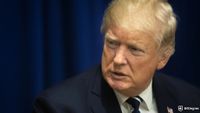Texas regulator claims that by the end of Q1, Abra was on the brink of insolvency.
In a recent announcement, regulators in Texas have called into question the solvency and ethical conduct of cryptocurrency lending company Abra.
As per the enforcement action issued on June 15th by the Texas State Securities Board, Abra and its creator, William Barhydt, have been involved in deceptive trade practices concerning the selling of investment offerings via its two affiliates, Abra Earn and Abra Boost.

Did you know?
Want to get smarter & wealthier with crypto?
Subscribe - We publish new crypto explainer videos every week!
What is BNB? The Truth Behind Binance Smart Chain (Animated)


Moreover, the crypto lending firm, reportedly insolvent since the end of Q1 2023, has committed securities fraud.
The alleged misconduct includes the intentional concealment of financial information reflecting the capitalization of parties, defaults on loans, and the transfer of assets to Binance.
Regulators claim that Barhydt and Abra presented investment opportunities in Abra Earn within Texas, making statements that could easily mislead or deceive the public.
Despite declaring in October 2022 that they would discontinue selling investments in Abra Earn, the firm initiated the offering and selling of investments in Abra Boost, a digital asset depository account, to accredited and institutional investors nationwide.
Additionally, as of March 31st, the firm was either insolvent or on the brink of insolvency. This claim starkly contrasts an assurance from an anonymous affiliate claiming that "Abra is not bankrupt."
In September 2022, Abra publicized its intention to become the first US-based bank to accept deposits in digital assets, with a launch planned at the start of 2023. However, the collapse of FTX in November forced the company to change its plans.
It is worth noting that it is not the first instance Abra had to deal with authorities. In July 2020, the SEC and Commodity Futures Trading Commission jointly fined Abra $300,000. The penalty came as a result of the firm's unauthorized offering of "security-based swaps" to retail investors and the failure to conduct these swaps on a duly registered national exchange.





















